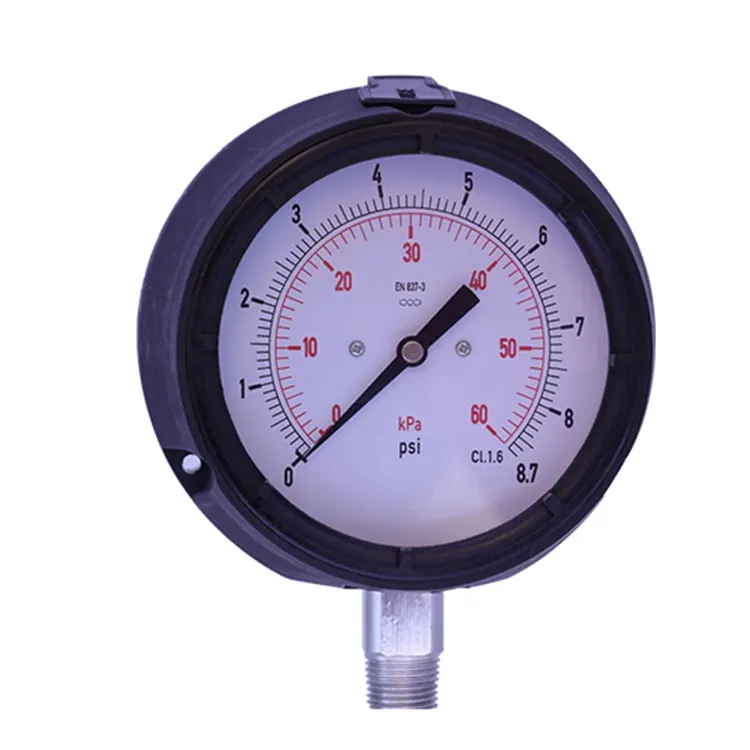Comparing Capsule Pressure Gauges with Other Pressure Measurement Devices
2025-02-07
Pressure measurement is crucial across various industries, and choosing the right pressure gauge can impact accuracy and efficiency. Capsule pressure gauges are specialized tools designed for low-pressure applications, but how do they compare to other types of pressure gauges? In this blog, we will compare capsule pressure gauges with Bourdon tube gauges, diaphragm pressure gauges, and digital pressure gauges to help you make an informed decision.
Capsule Pressure Gauges vs. Bourdon Tube Gauges
Capsule Pressure Gauges:
- Designed for low-pressure applications (millibar to kilopascal range).
- Measure non-corrosive gases and air efficiently.
- Utilize a capsule diaphragm that expands and contracts based on pressure variations.

Bourdon Tube Gauges:
- Suitable for medium to high-pressure ranges (hundreds to thousands of kilopascals).
- Measure both liquid and gas pressures.
- Use a curved tube that straightens when pressure increases to display the reading.
Key Difference: Capsule pressure gauges excel in sensitive, low-pressure readings, while Bourdon tube gauges are better for higher-pressure applications.
Capsule Pressure Gauges vs. Diaphragm Pressure Gauges
Capsule Pressure Gauges:
- Best for very low-pressure measurements.
- Typically used for air and non-corrosive gas applications.
- Mechanical operation with a sealed capsule design.
Diaphragm Pressure Gauges:
- Handle a wider pressure range than capsule gauges.
- Suitable for both liquid and gas applications, including corrosive substances.
- Utilize a flexible diaphragm that deforms under pressure.
Key Difference: Diaphragm gauges can handle a broader range of media, including liquids, whereas capsule pressure gauges are specialized for delicate, low-pressure gas measurements.
Capsule Pressure Gauges vs. Digital Pressure Gauges
Capsule Pressure Gauges:
- Purely mechanical operation, requiring no external power.
- Lower cost and long-term reliability due to fewer electronic components.
- Limited to low-pressure applications.
Digital Pressure Gauges:
- Highly accurate readings with digital displays.
- Can measure a wide range of pressures.
- Require power sources, such as batteries or external electrical connections.
Key Difference: Digital pressure gauges provide high precision and versatility but require power, while capsule pressure gauges are simple, reliable, and specialized for low-pressure applications.
Conclusion
Capsule pressure gauges serve a unique role in low-pressure measurement, offering high sensitivity and mechanical reliability. However, depending on your application, other pressure gauges like Bourdon tube, diaphragm, or digital pressure gauges might be more suitable. Understanding these differences can help you select the right pressure measurement device for your needs.


